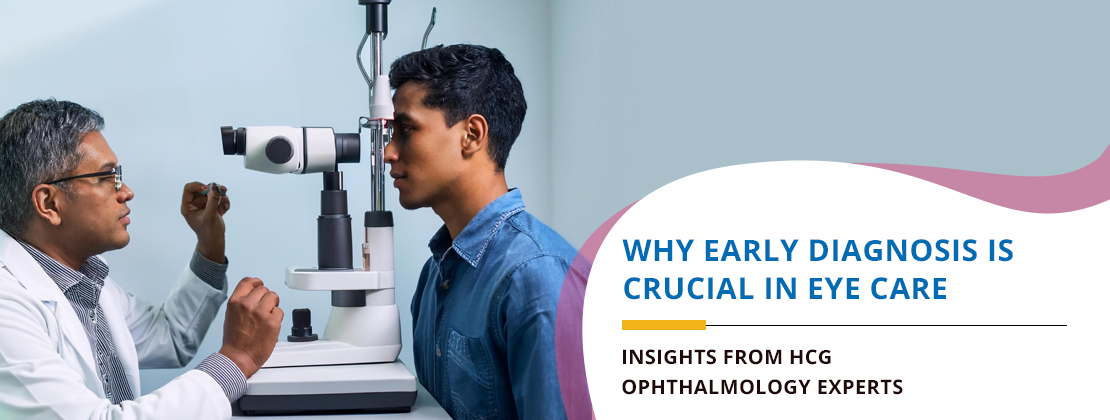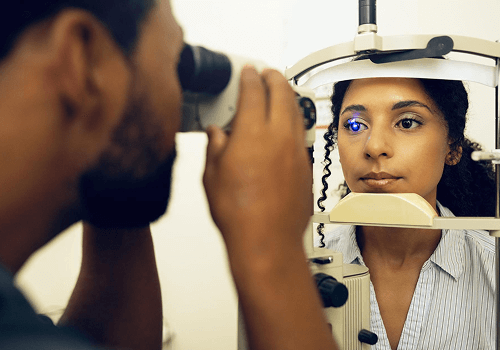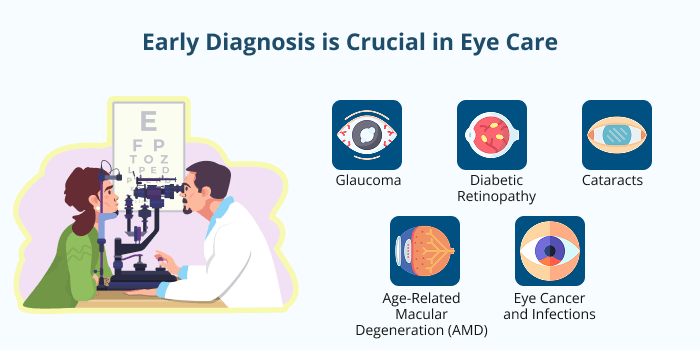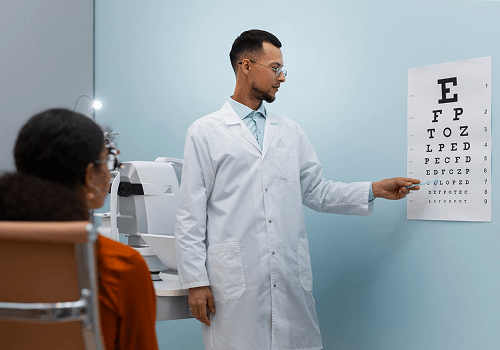
Home / Blog / Why Early Diagnosis is Crucial in Eye Care: Insights from HCG Ophthalmology Experts
Eyes are popularly known as the “windows to the soul.” However, what many don’t know is that they also provide a glimpse into one’s general health.
Several systemic diseases, like diabetes, high blood pressure, and some neurological conditions, present with ocular manifestations. Unfortunately, most Indians pay little attention to eye health and seek medical help only when eye problems become serious.
According to the World Health Organisation (WHO), nearly 2.2 billion people globally live with vision impairment, and at least half of these cases could have been prevented or treated with timely diagnosis.
Reports suggest that about 34 million people in India live with blindness and other forms of visual impairment. Additionally, it has been found that in about 85% of cases, blindness can be prevented.
This is when the experience of an eye treatment doctor and timely diagnostic examinations become crucial. Early detection goes a long way in controlling several major illnesses such as glaucoma, diabetic retinopathy, and cataracts.
At HCG Hospitals, a leading multispeciality hospital in Ahmedabad, we offer comprehensive eye care. If you are looking for the best ophthalmologist in Ahmedabad, visit HCG Hospitals today.

The majority of people think that eye examinations are only for testing how well one can see or changing glasses. However, in truth, a routine eye checkup is about much more than just improving vision.
An experienced ophthalmologist conducts comprehensive tests to assess eye pressure, retinal health, optic nerve function, and corneal condition. These tests are useful, as they assist in detecting illnesses early enough to prevent total blindness.
In India, many people delay visiting an eye treatment doctor until symptoms like blurred vision, eye pain, or difficulty focusing appear. Nonetheless, certain severe eye diseases like glaucoma and macular degeneration may advance silently in the early phases. By the time symptoms show, substantial damage may already have occurred.

Early detection in eye care is not just about treating existing conditions; it’s about preventing future vision loss.
Clearly, timely visits to an eye care specialist can make the difference between lifelong vision and preventable blindness.

At HCG Hospitals, ophthalmologists rely on clinical expertise supported by essential diagnostic tools to ensure precise evaluation:
Note: Advanced imaging techniques such as OCT, fundus photography, and fluorescein angiography are not currently available in-house. In select cases, patients may be referred to specialized clinics for these investigations.
This approach ensures patients receive the right diagnosis and guidance, with multidisciplinary support where required.
The frequency of eye exams depends on age, health condition, and risk factors. At HCG, we follow a structured guideline:
Regular eye checkups are important for everyone, as they protect vision and help in identifying systemic diseases early. The significance of early detection cannot be overstated, especially with the rising prevalence of diabetes and lifestyle-related conditions in India.
Do not wait for symptoms like eye ache, unclear vision, or sudden loss of sight. Consult an ophthalmologist at HCG Hospitals, one of the leading multispeciality hospitals in Ahmedabad, for timely attention and care.